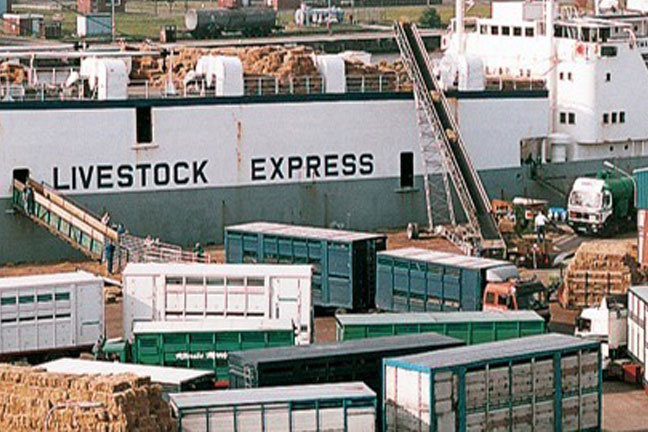
Agricultural News
APHIS Proposes Import Regulations in Line with International BSE Standards
Fri, 09 Mar 2012 15:07:28 CST

The U.S. Department of Agriculture's (USDA) Animal and Plant Health Inspection Service (APHIS) announced it is seeking public review and comment on a proposal to complete efforts to modernize the Agency's import regulations for bovine spongiform encephalopathy (BSE).
"This proposal is an important step forward in our efforts to bring our import regulations in line with science-based, international animal health standards," said Dr. John Clifford, APHIS Deputy Administrator and Chief Veterinary Officer. "The proposal will help ensure we continue to provide strong protections against BSE, continue to make science-based decisions, and fully support safe trade in bovine commodities. As we continue to protect the health of the U.S. cattle industry, this proposal will also assist us in future negotiations to reopen important trade markets that remain closed to U.S. beef."
Click on the LISTEN BAR below to hear more from Dr. Clifford.
While the proposed rule would allow for the safe trade of additional bovines and bovine products, it's important to note that control of imports is only one of several interlocking safeguards against BSE. The proposed rule would not change other measures that are currently in place in the United States. For animal health, these measures include the U.S. Food and Drug Administration's ruminant-to-ruminant feed ban and a robust BSE surveillance program. Human health is protected by measures that ensure the safety of U.S. beef, the most important of which is the ban on animal materials that have been shown to carry the BSE agent (known as specified risk materials) from the food supply.
Under the proposed rule, APHIS would adopt the same criteria and categories that the World Organization for Animal Health (OIE) uses to identify a country's BSE risk status-negligible, controlled, and undetermined risk. APHIS would base its import policy for a particular country on that country's risk classification as determined by OIE's risk evaluation. The rule would also allow APHIS to conduct its own assessment when deemed necessary, such as when a country is not yet classified by the OIE for BSE risk and requests that APHIS conduct a risk evaluation using criteria equivalent to that used by OIE. All countries would be considered by APHIS to have an undetermined BSE risk unless officially recognized as either negligible or controlled risk.
The OIE determines a country's risk status based on actions the country has taken to manage the risk of the disease. These actions include instituting a strong ruminant-to-ruminant feed ban, strictly controlling imports of animals and animal products from countries of undetermined risk, and conducting appropriate surveillance.
The OIE Code, which is based on the latest science and current knowledge concerning BSE, provides guidelines for the safe trade of animals and products based on the country's risk status and the risk presented by the specific item being traded. For example, under the Code, boneless beef is considered to be lower risk and could be safely imported regardless of the BSE status of the exporting country. Live animals, however, present a higher risk and the OIE guidelines recommend that import requirements be applied depending on the BSE risk classification of the exporting country. In the United States, imported commodities would also need to meet entry requirements for other diseases, where applicable.
This action is scheduled for publication in the Federal Register within a week. The proposed rule is currently available by clicking here.
WebReadyTM Powered by WireReady® NSI
Top Agricultural News
More Headlines...




















